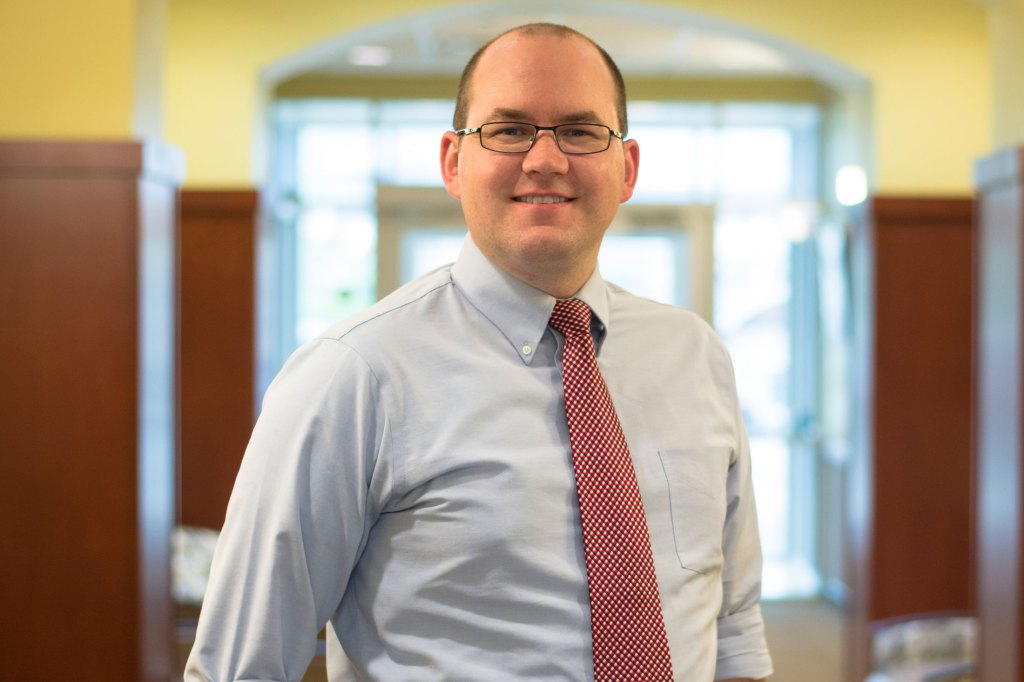Heads up! Concussions can happen during physical activities such as sports or even with a fall or accident at home. Everyone is at risk for a concussion, not just athletes. We sat down with Ogden Clinic Sports Medicine specialist Brett Martindale, MD, for a “concussion discussion” to talk about how we can keep our noggins safe and how to prevent, detect, and treat concussions.
Q: What are some of the symptoms you would see in someone who had suffered a concussion?
A: Vomiting is a common occurrence after suffering a concussion. Another distressing possibility is that a concussed individual might display seizure-like activity – it’s not actually a seizure, but it can certainly be unnerving to an observer. Those are two dramatic symptoms.
More common symptoms include headaches, disorientation, and confusion. A person who has suffered a concussion during a sporting event may not know what the score of the game is, or what quarter the game is in. The person might also be bothered by bright lights or loud noises.
Q: What should a person do if they believe they have suffered a concussion?
A: Hopefully if you suffer a concussion, there is someone with you to help notice any possible symptoms. If you’re suffering severe symptoms (vomiting, etc.), it’s best for you to get into an ER or urgent care as quickly as possible.
More commonly, however, a person will come to see me if they’ve been suffering headaches for several days. Studies have shown that the sooner you can get proper care, the sooner you can get those symptoms resolved. Still, I’d encourage you to come to see me or a fellow provider even if several days have passed – we can still provide meaningful care and help you overcome your symptoms more quickly than you might on your own.
Q: What role can a parent play in helping a child who has suffered a concussion?
A: A parent can play a critical role in helping a child recover. The most important thing for a concussed child to do is to rest in order to allow their brain to recover. It’ll be up to the parent, then, to make certain that the child is getting the rest she needs, and avoiding all activities that might complicate her recovery.
Q: Is it dangerous to fall asleep after suffering a concussion?
A: The act of sleeping after a concussion is not dangerous in itself. The danger lies in the ability of observers to monitor consciousness. It is possible to involuntarily lose consciousness for several hours after a concussion. If that happens, it’s a problem and it needs to be evaluated right away.
I encourage patients to try to stay awake for a few hours after they suffered their concussion, just to make sure that their symptoms aren’t overly severe. But there is no danger in taking a nap after a proper amount of time has passed.

Dr. Brett Martindale is a Sports Medicine Physician at Ogden Clinic. To schedule an appointment with Dr. Martindale, please click here or call 801-475-3300.




.4).2511050842400.png)
.jpg.2511241144379.webp)